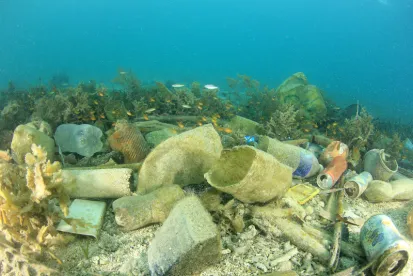This week scientists, policy makers and lawyers from France and the United States are getting together to discuss the catastrophic effect of plastic waste in our oceans and what might be done about it. Registration to participate in the program virtually is free. A registration form is linked here.
This summit couldn't come at a better time since just last month the United Nations Environmental Assembly agreed to reach an international legally binding agreement attacking the problem of plastic waste in our oceans by the end of 2024. The short time the United Nations has given itself to reach this milestone tells you everything you need to know about the immensity of the plastics problem.
Every time I dive, wherever I dive, I see the permanent damage plastics do to our oceans and the many species that live in them.
I was honored to be a member of a team of French and United States lawyers who published a comparison of the way France, as a member of the European Union, and the United States have approached the ocean plastics catastrophe up until now. Over the next few days I'll share some conclusions from the paper I played a small part in producing. Spoiler alert: The United States has some catching up to do.
The Global Council for Science and Environment (GCSE), the Office for Science and Technology of the Embassy of France in the United States, and Long Island University invite you to join us for an international summit focused on the continued effort and opportunity for research institutions and universities to collaborate and support the long term data, research initiatives, actionable policy sets and future projects that leverage the value of sharing transboundary knowledge. This summit will feature distinguished scholars and leaders committed to curbing plastic pollution on local, national and global levels.




 />i
/>i

